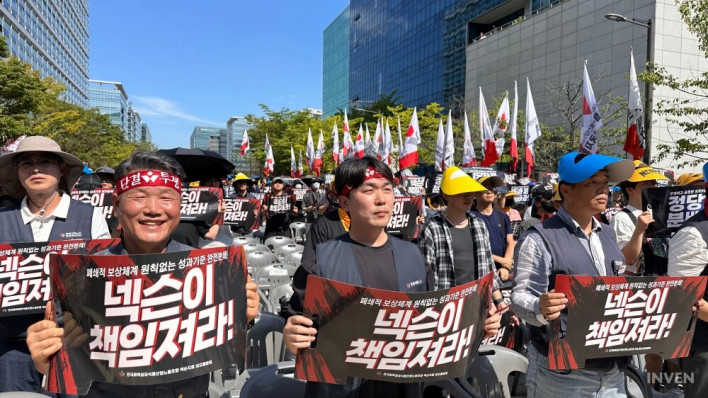
Negotiations between the Neople Labor Union (hereafter, the union) and management collapsed again on the 4th. The union announced that it would stop short-term actions and shift to a longer-term struggle. The union explained that, although it had moved as close as possible to management’s proposals during the talks, the two sides failed to reach agreement.
As a result, the union plans to have its members return temporarily to work from September 8, while carrying out a work-to-rule campaign and focusing on internal reorganization. It intends to resume the strike later in September. According to the union, this is a strategy designed to sustain the dispute over time in the face of management’s lack of active engagement in negotiations.
The union also stated that the main focus of future negotiations would shift from one-off compensation to the creation of a system that guarantees fair distribution of results for all employees. Specifically, it seeks either the institutionalization of profit-sharing (PS) or an equivalent structured compensation framework.
Union officials stressed that they had already moderated their demands and tried to meet management halfway in hopes of a quick settlement, but warned that if the company continued to insist on making no concessions, they would escalate into a prolonged dispute. They added that preparations were under way for a struggle that could extend into the year’s end and into next year’s talks.
The union further commented that this strike, as the first of its kind in the Korean games industry, was already exerting a major influence across the sector. They viewed it as a turning point for establishing transparent compensation systems and healthier workplace conditions. They also cautioned that if the company refused dialogue, the conflict would drag on, damaging trust and competitiveness throughout the games industry. In their view, the current strike represented the first step toward changing labor culture across the sector.

Management, however, gave a different account. The company argued that the union had not presented a revised proposal during the talks. A company representative explained that the union had failed to put forward a new plan, and that discussions stalled because the union once again attached PS-like conditions to the company’s revised spot-bonus proposal, leaving no room for progress.
This article was translated from the original that appeared on INVEN.
Sort by:
Comments :0






